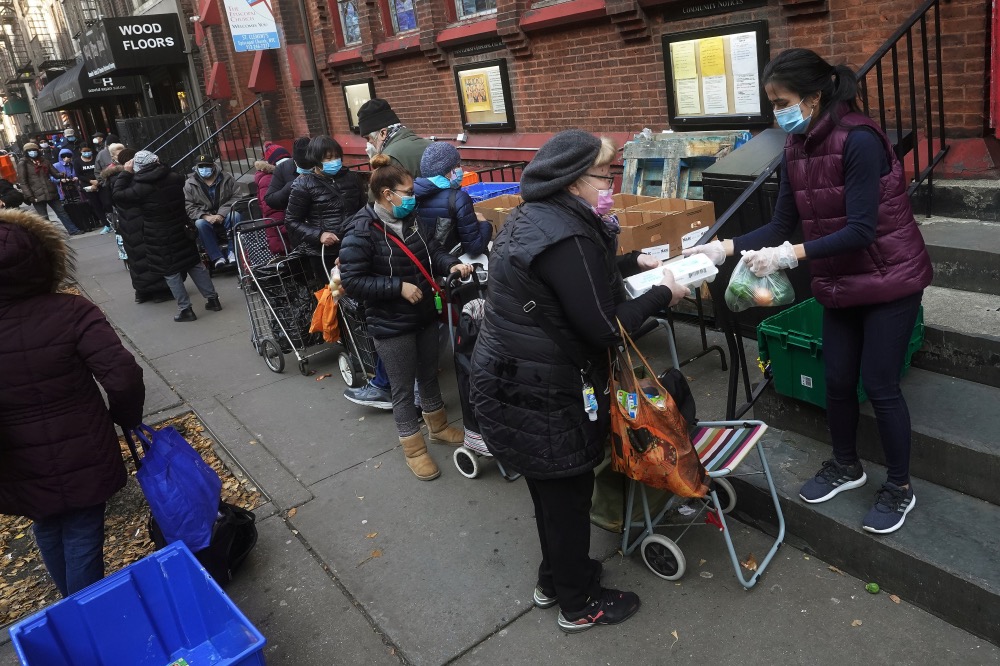New York City, US
Thomson Reuters Foundation
Longstanding inequalities in the US labour market have worsened amid the coronavirus pandemic with working from home fuelling the divide, according to a Gallup report released on Wednesday.
Gallup surveyed more than 7,700 US adults in the final quarter of 2020, with the findings showing that pandemic-related job losses skewed heavily towards Hispanic and Black Americans, as well as those with lower education and income levels.

People wait in line at the St Clements Food Pantry for food during the coronavirus disease (COVID-19) pandemic in the Manhattan borough of New York City, New York, US, on 11th December, 2020. PICTURE: Reuters/Carlo Allegri/File photo.
More than 40 per cent of Americans whose 2019 incomes were in the bottom 20 per cent, multi-racial and Hispanic workers, and those without a college degree, said they had been laid off during the pandemic compared with 31 per cent of overall respondents.
Only 11 per cent of the survey’s top earners, whose 2019 incomes were in the top 10 per cent of respondents, were laid off, the report found.
“We brought into the pandemic all of these structural problems and they played out in a way that made life worse for people who were already struggling,” Gallup’s principal economist Jonathan Rothwell told the Thomson Reuters Foundation.
“Aid needs to be disproportionately targeted to those disproportionately affected.”
The study found that remote working had created new discrepancies.
Respondents who were able to work remotely were more likely to report an improvement in job quality versus an overall decline, 45 per cent of respondents versus 33 per cent.
On the flip side, respondents who were not able to work remotely throughout the pandemic were more likely to report deteriorating working conditions, 43 per cent of respondents versus 30 per cent.
But as with job security, the researchers found that access to remote work was conditional upon income, with the top earners reaping the benefits.
Half of the survey’s top earners in 2019 reported that they currently always work from home compared to one in five workers whose income was among the bottom 20 per cent of respondents.
“There needs to be some kind of compensation for the burden that they take on by exposing themselves to disease, not just during a pandemic,” said Rothwell, referring to workers who have jobs that make it impossible to work from home.





